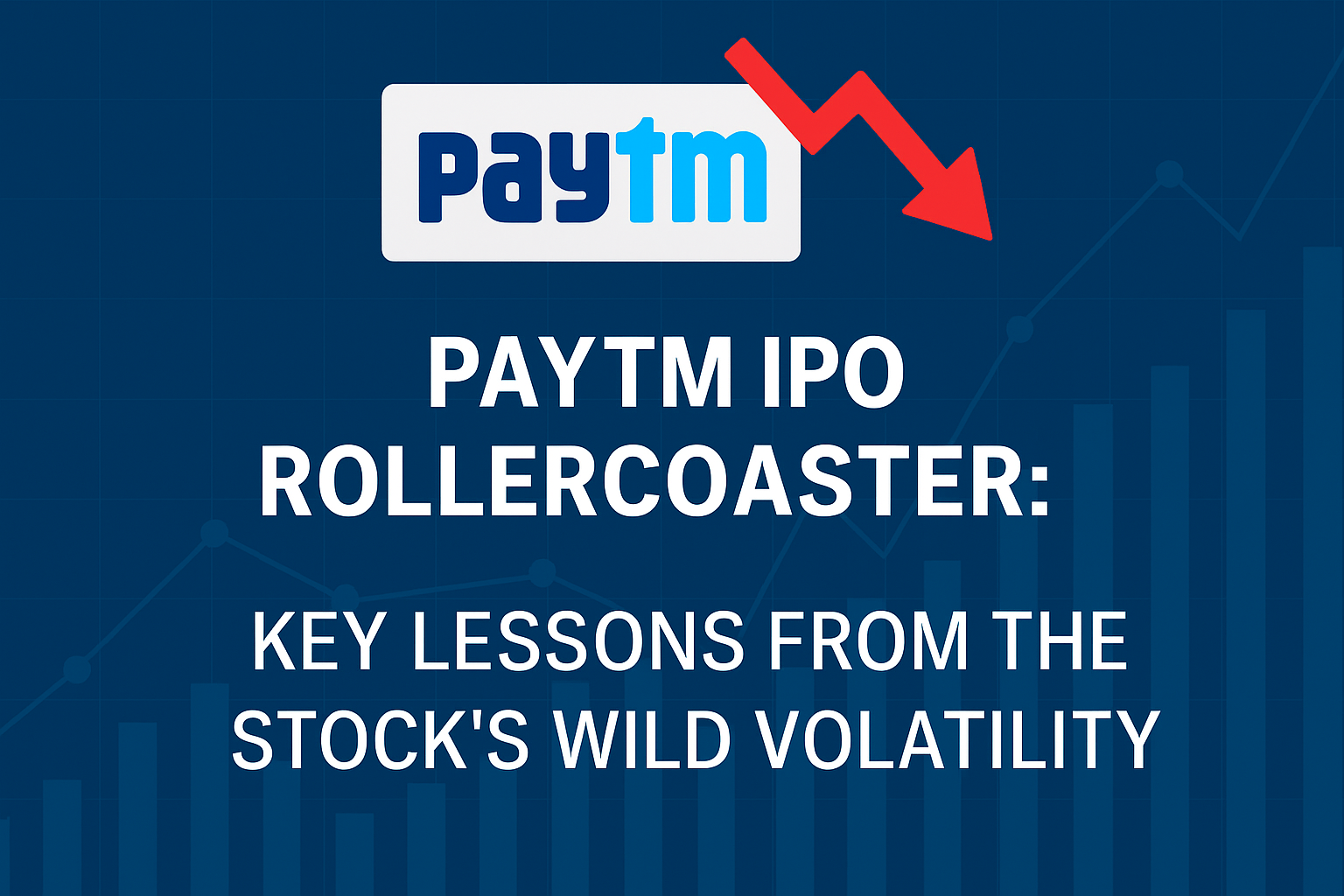Announcement: Lorem ipsum dolor sit amet, consectetur adipiscing elit. Donec et quam blandit odio sodales pharetra.
Huge volatility in Paytm stock leaves us with important takeaways
When Paytm listed on the previous Thursday, it was almost a disastrous listing. At one point on Monday, the stock was down 41% from its IPO price but has since recovered over 40%. But there are some key takeaways from the Paytm listing story, we must not miss.

Table of Contents
What exactly went wrong?
Ahead of the IPO, Macquarie had given a brutally negative report on the stock. They almost sounded prophetic as the stock cracked rapidly from the issue price of Rs.2,150 to a low of Rs.1,271. However, in the next 2 days, the stock recovered a full 40%, although it still trades 18% below the IPO price. The sharp recovery showed that the initial panic around the stock may have been overdone. After all, big names like Ant, Softbank & Berkshire are still confident. The IPO of Paytm was subscribed at 1.89 times, and with that setting the IPO price at the upper end of the band, was rich in the first place. Secondly, the allotments to most investors was quite liberal and the correction meant there was a lot of panic selling. In the midst of this melee, there were big questions raised about the logic of digital company valuations, including the likes of Nykaa, Zomato and Policybazaar. The fall was stemmed when big anchor investors like Blackrock and Canadian Pensions got into the stock at lower levels and that gave a lot of confidence to the markets. But, there have been some takeaways.
Law of large numbers
One of the basic rules that people must remember is that it is easy for a small stock like Latent View or Paras Defence to give multi-bagger returns on listing. However, when a company like Paytm with a market cap of Rs.120,000 crore lists, it is never going to see that kind of returns. In a ways, investors must stop playing the IPO market like a short-term trade and stick to the classical value-based approach. Secondly, investors need not give too much credence to the oracles of value as valuing a digital play is easier said than done. Paytm is a key lesson that IPO market is also fraught with risk, irrespective of the heady returns that IPOs gave in recent times.
Not all digital plays are the same
A number of investors were enthused by the successful listing of Zomato and Nykaa and thought that all digital IPOs would be a ticket to riches. That is not the case. For every successful Zomato or Nykaa there is a CarTrade, which trades 30% below the IPO price. Like traditional business models, even digital models are as different from each other as cheese and chalk. For example, Nykaa and Zomato are simple models where outcomes can be demonstrated in the short run. Paytm is more a long-haul model. Investors need to make fine distinctions. It is good Paytm happened in the early stages of the IPO journey for a better grasp of the IPO story!
Comments